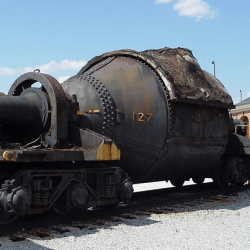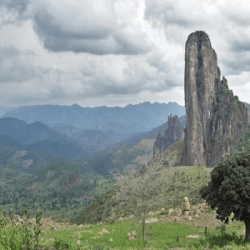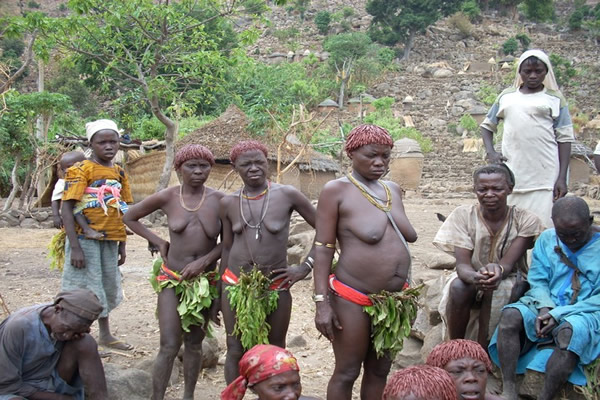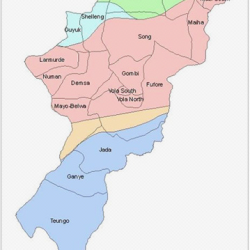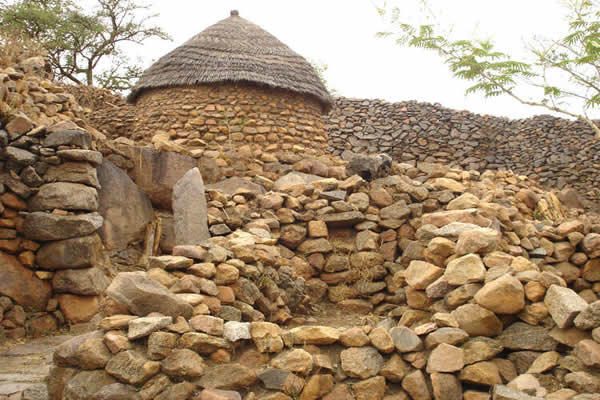Nigeria’s north-eastern state of Adamawa is blessed with some of the wonders of the world.
Lamurde Hot Spring, also known as Ruwan Zafi, is one of the tourist centres in Nigeria. It is located in Lamurde about 103 km from Yola, the capital of Adamawa state, Northeastern Nigeria.
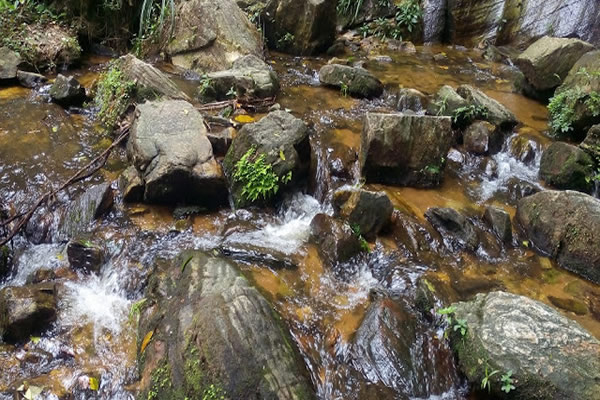
The Lamurde hot spring which the natives call ‘Ruwan Zafi’ means ‘Hot water’. It is above 50C at its hottest spot. From far sight, it looks like any other spring till you dip your legs into it.[1] This hot spring is part of the world’s popular Sukur Cultural Landscape, which consists of a palace, villages, and the remains of an iron industry. The place was designated a UNESCO World Heritage site in 1999 and has since become one of the top tourist destinations in Nigeria.

Though the earth heats up water and pushes it out to the surface, the locals still believed that the hot spring possesses healing power that can cure diseases. Many people have come to experience the charms of the hot spring and return another day to do it all over again. The Gyakan and almost everybody in the local government is proud of their ancient spring.

The Lamurde hot spring, located in Gyakan village in Lamurde Local Government area of Adamawa State, is one of about eight known thermal springs within the Benue trough, mostly located in the northern and central portion of the trough. Also known locally as Ruwan zafi, the spring is spewing out in the outskirt of the village continuously all over the year forming a large body of water that flows downstream to join a larger spring that empties its content to the Benue River. It has a constant water temperature of about 54 °C which is much higher than the environment’s mean annual ambient temperature of 34 °C, making it one of the hottest hot springs in the Benue trough.
The spring is designated as one of the UNESCO world heritage sides in 1999 and has since then become one of the tourist destinations in Nigeria.
The hot spring spewing out of the Gyakan village is as hot as the water in your electric kettle brought to a boiling point.
It runs unceasingly all the year round, forming a large and deep body of water and flowing downstream to join another, larger water body.
It is likely that all this charmed the Germans who in the 19th century ruled this part of Africa before the British took over following the Berlin Conference.
Gyakan folks quartered in Lamurde local government council of the state believe their hot spring is unique.
They may not know how the earth heats up water and pushes it out to the surface but the Gyakan are sure that the hot spring in their domain is therapeutic and can cure a number of diseases that have rattled the skulls of the best medical professionals in the world.
Ruwan zafi, as the locals call it in Hausa, meaning ‘hot water’, has held many a visitor spellbound. They hear it rumbling out of the ground even as they gaze at the grandeur of the mountain range. Many come to experience the charms of Gyakan hot spring and return another day to do it all over again.
The Gyakan and virtually everybody in the local government are proud of their ancient spring. They speak enthusiastically of its mysteries and its curative properties. They are thankful that nature counted them worthy of such an endowment.There are plans by the Lamurde local government, we learnt, to beautify the location of the hot spring to make it worthwhile for the numerous visitors to the area.
Lamurde hot spring is part on the world popular Sukur Cultural Landscape, which consists of a palace, villages, and the remains of an iron industry. The place was designated a UNESCO World Heritage site in 1999 and has since become one of the top tourist destinations in Nigeria.
